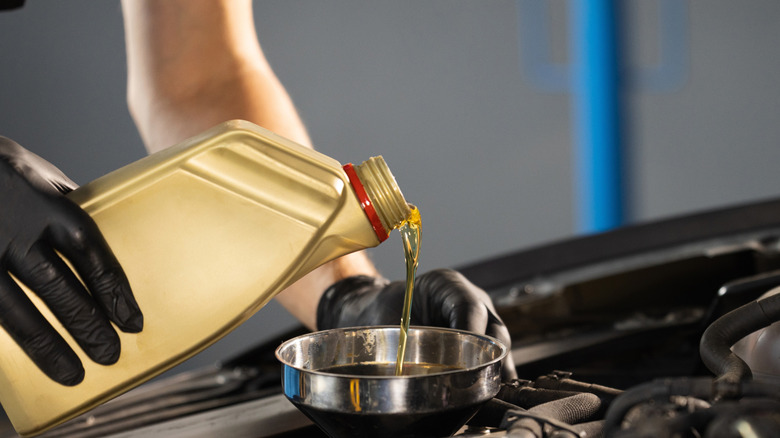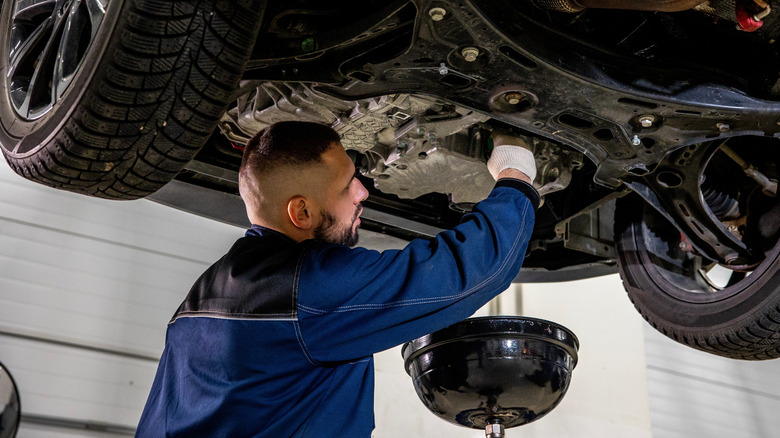Does Engine Oil Evaporate? Here's What You Need To Know
The oil in your engine can evaporate, but only under very specific — and extreme — operating conditions. These conditions occur when your engine is operating at very high temperatures, which can happen when you are driving hard or in a very hot climate. These high temperatures also expose your oil to a variety of hot surfaces within the engine, which can also contribute to any oil evaporation that occurs. If you regularly cruise at high speeds or track your car, evaporation of your oil could be a concern.
However, oil evaporation under normal operating conditions is something that is not usually a factor that contributes to a significant loss of oil, unless you're using low-quality oil. If oil were to evaporate too fast, it could leave materials behind that could damage your engine by clogging oil passageways. Fortunately, the best motor oil brands are designed to withstand these extreme conditions, featuring low volatility levels that discourage evaporation.
Most oil loss noticed between changes can usually be traced to other issues within your engine. What you may think is oil evaporation is much more likely to be a problem with the internal sealing of the moving parts within your engine. These potential issues can often be traced to oil leakage that can result from defective or worn gaskets, piston rings and/or seals, which can let the oil escape from the crankcase. This can allow your oil to make its way into the combustion chambers, where it burns along with the gasoline that is supposed to be combusted in there.
What else should you know about engine oil evaporation?
Unless you regularly operate your vehicle under very extreme conditions, you shouldn't worry about oil evaporation. Any significant loss of oil that you notice when regularly checking your oil level is more likely to be related to a leakage issue. Common reasons for your car's engine leaking oil are fairly easy to remedy.
The best strategy for tracking down the source of the leak, which can be external or internal, is to first look for leakage on the outside of your car. This can take the form of oil stains on the ground where you park, the smell of burning oil coming from your exhaust manifolds, or oil drips visible on your engine. Insert a large clean piece of cardboard under your car when you park, checking it for any leakage the next morning.
Internal leakage, as noted above, could mean that your car is one of those that simply consumes a lot of oil as a routine matter. If that's not the case, then some major engine work could be in your future. Replacing a worn gasket is fairly straightforward, unless we're talking about a blown head gasket. If your piston rings are worn and need to be replaced, the engine will need to be taken apart, which involves a lot of labor. Most of these problems, except for excessive 'normal' oil consumption, can be prevented by using the correct oil for your vehicle and usage scenario, changing it at proper intervals, repairing leaks, and checking the level regularly.

